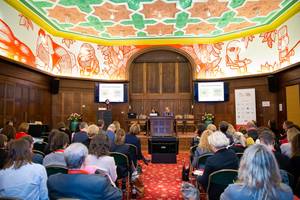
As has been the tradition for many years already, ACA’s flagship seminar, What’s new in Brussels?, opened the 2019 series of ACA events. With about 120 participants, the event was sold out, even oversubscribed. Not only did we have star presenters and a very attractive programme, as participants told us in their evaluations. We were also a bit lucky: the legislative procedure for setting up the new programme (our working title: Erasmus 2021-2027) is now in full swing and everybody expects to that far-reaching decisions will be taken this year.
Everyone welcomed the approach of the Commission’s proposal, promising evolution rather than revolution, after the drastic structural reform which characterised the past reform leading to Erasmus+. Universities, national agencies (often ACA members) and national governments largely agreed. Of course, the devil is often in the details. Once again, we are promised ‘simplification’, but this has been so with every renewal of Erasmus since 1989. And it rarely worked.
The Commission proposal foresees roughly a doubling of the budget (compared to the present 7-year period). The European Parliament demands a trebling. The member states are likely to be far stingier. Now let us say we finally end up with a doubling. This sounds not bad, but it is probably far too little to be compatible with the increasing access of financially underrepresented and otherwise disadvantaged student groups. In this context, ideas such as much shorter mobility stays or ‘blended mobility’ were met with scepticism. This was not the audience’s preferred interpretation of the ‘inclusive nature’ of the programme.
Last, but not least, the famous ‘European universities’ were hotly debated. How can one reconcile the inclusive character of the programme with the idea of ‘excellence’? And excellence in what exactly? Asked this question again and again, the European Commission encouraged universities to be ‘innovative’ and ‘think out of the box’. The first of two pilot calls will soon close and the selected projects might give us a first idea of what ‘innovation’ could practically mean.
The programme was rounded off by a look at the continuation (or not) of ET 2020 and at EUA’s latest Bologna stocktaking report.
